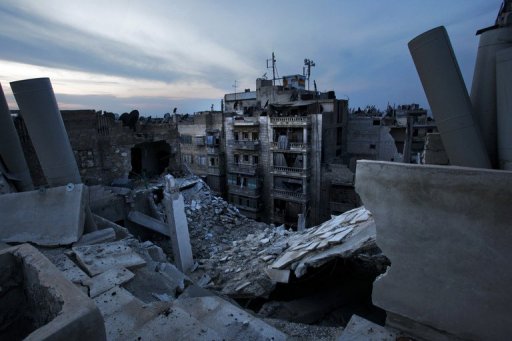US Secretary of State Hillary Clinton will meet Russian Foreign Minister Sergei Lavrov and UN peace envoy Lakhdar Brahimi on Thursday for talks on the conflict in Syria, a US official said.
The three-way talks in Dublin come amid growing concern about the 21-month conflict in Syria, and fears the regime of President Bashar al-Assad could be preparing to use chemical weapons as it battles opposition rebels.
Clinton on Wednesday renewed Washington’s vow to find ways to provide fresh support for the Syrian opposition which has come together in a new body known as the Syrian National Coalition.
Washington has so far provided humanitarian, non-lethal aid to the rebels, but officially declined to arm the opposition.
Clinton also warned Damascus again that any use of chemical weapons against rebel forces was a clear red line that must not be crossed.
But she again pressed the Assad regime to make “the decision to participate in a political transition, ending the violence against its own people.
Moscow has been a staunch ally of Assad and has vetoed UN Security Council resolutions aiming to sanction the regime.
The United States has been calling for some time for Russia to use its leverage with Assad to try to persuade him to step down, and open the way towards a political transition.
Russian President Vladimir Putin met Turkish Prime Minister Recep Tayyip Erdogan in Istanbul on Monday on a trip focused on resolving sharp differences over the conflict.
Last month, Erdogan said Russia held the key to the Syrian conflict, and that if Moscow took a “positive” stance in the Security Council it could push another key Damascus ally Iran to review its policies.
The Dublin talks will also come ahead of a key meeting of the Friends of the Syrian People in Marrakech next week, which Clinton will attend.
It is possible the United States will move towards recognising the Syrian National Coalition as the legitimate representative of the Syrian people at the meeting, after France last month became the first Western nation to do so.
Britain, Turkey and the Gulf Cooperation Council followed suit, but the coalition has failed to win universal backing because of doubts about whether it is genuinely representative of all sectors of Syrian society.

COMMENTS
Please let us know if you're having issues with commenting.